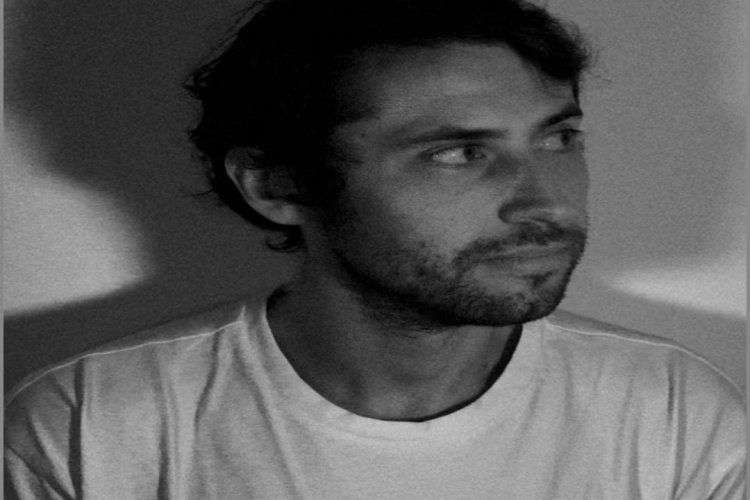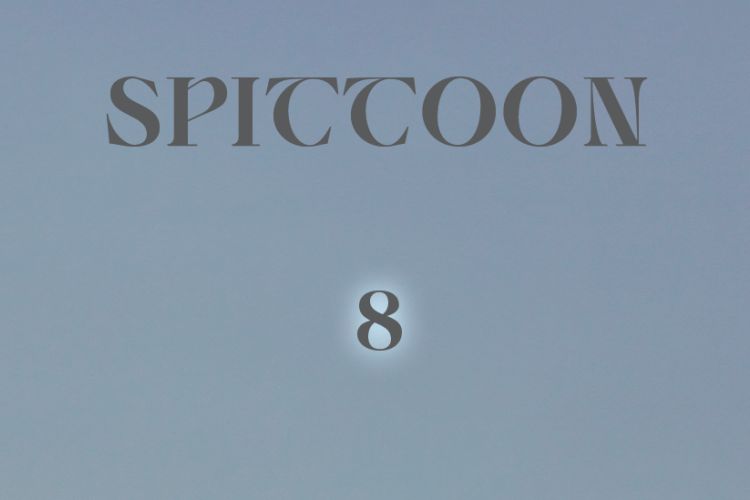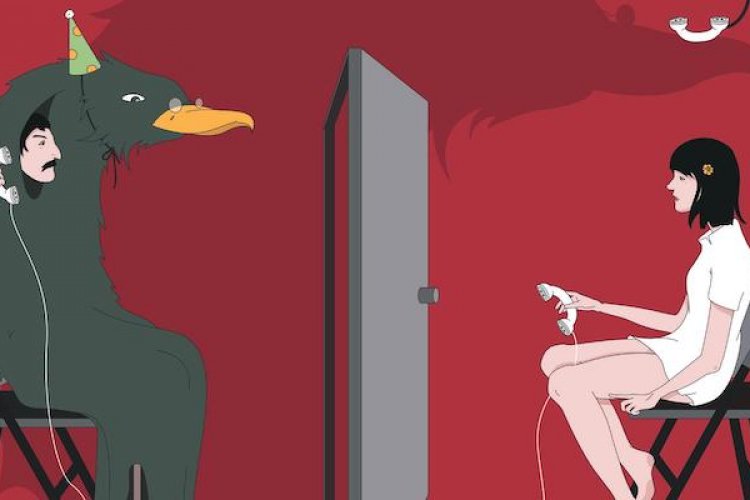Spittoon Presents: "A City is Human Too" – An Interview with Siddharth Dasgupta
Spittoon Monthly presents an interview with poet and novelist Siddharth Dasgupta discusses the erotic nature of cities, the indivisibility of place and language, and the “untouched sweetness” of foreign words. Click here to read Dasgupta's poetry.
Deva Eveland: In several poems the erotic is linked to the idea of place, a city. What bonds these two ideas?
Siddharth Dasgupta: A city is human too. It’s a thought I’ve carried with me from a fairly young age, this aspect of an address or a given piece of geography being able to live, breathe, and ever so often, speak. In this act of being human, the city would have every right to be erotic—wet, vehement; prone to the whims of desire; harboring a hidden ache, an ache disposed to eruption and friction at the casual sensory provocation, like the unexpected breeze, or the laughter of two lovers. Within my poetry and fiction, what also occurs is that a given character’s moods and emotional landscapes are habitually either juxtaposed against, or articulated via, the lingua and backdrops of the city. You walk the city, carrying within you your sexuality, a sense of yearning, and find the city reciprocating via its textures. Meditate for a while on the rustling of leaves, the fragrance of a bakery, the whiff of impending rain, spires and boulevards, humans, and their fragilities … It’s easy to see why cities and the erotic are such likely bedfellows.
DE: “One Indian City, Two Indian Lovers” is interspersed with words in Urdu (I think?), which I enjoy as pure sound if I read the poem aloud, but cannot understand. This brings up a few questions. What is your approach in drawing attention to isolated non-English words within a poem that is otherwise English? Would your usual readers understand both? Is the scene perhaps one where the two lovers might be switching languages anyway as they spoke?
SD: With language and the presence of the foreign entity (to the English-speaking reader) among an ocean of English, I tend to go with instinct. With some poems and narratives, I’ll feel that the meaning would be useful, and will have it included as a footnote. With certain poetry, the explanation arrives within the poems themselves. Here, my agenda isn’t clarity, but cadence—the essence, or an abstraction of the essence, is actually serving the rhythmic needs of the poem—a lilt of tongue, the beautiful oddness of foreignness.
You’re right; the words in “One Indian City, Two Indian Lovers” are Urdu. And this plays to when I have absolutely no desire to explain the words. The “why” of it lies in your question itself—so that the reader may enjoy the pure sound of the canvas, unsullied by meaning and context. Of course, I’ll try to leave enough clues in the language surrounding the word(s) so that you have a fair enough idea, but even if you get the meaning entirely wrong, there’s no loss really. You’ve tasted the untouched sweetness of it.
I’m not sure who my usual readers are. I would hope that they’d be open to the whims of language though, as with this poem. The dance of dialect then offers playfulness, the dark thrill of not knowing … Even an exhalation uttered as a soliloquy, meant to allay an aroused heart. The lovers here are flirting with the tremors of an intimacy that lives outside of language
DE: Which city is more erotic, Istanbul or Calcutta?
SD: I don’t think that answer could be laid out on cards, all contest-like. Cities have moods, and the great cities of the world are especially moody creatures. The weather could swerve, the tides could shift, and you’re left with a changed city—in feel, in emotional tonality. There are enough addresses where both cities are at their most erotic. I have Istanbul etched out quite clearly, having walked its neighborhoods and dived into its pleasures far more recently, relatively speaking. Calcutta remains a faint, faraway dream. The thing to remember with them though is that both are old cities, carrying the drunkenness of fables and the weight of character. All of which lends itself to deeply enriching affairs for the traveler, and writer.
DE: Your poems have a strong sense of place, and you are also a travel writer. What draws you to write in both genres?
SD: I’ve never thought of place as being removed from the heart of a poem or a work of fiction. In my earliest impressions as a reader, place was consistently as interesting a character as the central protagonist—Tintin and any number of addresses, the Arctic, the moon; or a planet and its sole princely inhabitant. In adult life, it’s words from the likes of Marquez, ensconced in Latin American panoramas, or Rushdie, born and garnished within the tumults of a glorious Bombay, that have perhaps held me the most. As a writer then, I can’t think of place as being a casual bystander. Again and again, it’s the most compelling motif in our lives—the city, the town, the geographical anchor.
My life in travel writing could, conceivably, be viewed as a natural extension of, and at times, an accompaniment to, my life as a writer. Whenever I travel, things tend to stay—a conversation, an encounter, the aromas of a market, the sound of shoes on cobble on a street, the diagram of the windows. Anything might emerge, sometimes years later, in the stanzas of a poem or the physical arc of a character. These resonances could just as easily be steered towards a travel feature. Half the fun lies in not knowing.
DE: “Calcutta Unto Chimera” mentions a number of literary and cultural figures with significance to the city. Could you talk a bit about the literary heritage of Calcutta?
SD: Half of me is Bengali, owing to my father, and so the idea of Calcutta—Calcutta as a theme, if you prefer—is an inherited preoccupation. I know Calcutta in wisps and figments of conversation, in the starkness of letters and the charisma of frozen frames. To go into the literary heritage of great cities requires time and emotional space, so I won’t get into the intricacies of it just now. What I will mention is this: any piece of literature in the city usually finds itself being filtered through the twin prisms of Tagore and Ray—Tagore, for a wealth of words and poetry, but also for the sense of nobility with which he walked the earth; Ray’s legacy is cinematic sure, but he was also prodigious with words, leaving them scattered across novels, short stories, translated poetry, screenplays, and his sketched out storyboards. The poem, in a way, offers fond homage to these two founts of a faraway yesterday.
DE: Is there something you wish I asked that I haven’t?
SD: You could’ve asked me what I had for breakfast this morning. A perfectly reasonable question it would’ve been too. The answer? A simple omelette—perfectly fluffed, this way and that; a few slivers of smoked chicken; a slice of homemade bread (made in someone else’s home, mind); and some Radiohead on random shuffle. Poetry is where you find it, no?
Siddharth Dasgupta is an Indian Poet & Novelist; he has written three books thus far.
Siddharth’s poetry & fiction have appeared in Kyoto Journal, Poetry at Sangam, Entropy, Litro, Cha, Madras Courier, the Bombay Literary Review, and elsewhere. Off-and-on, Siddharth also dives into elements of travel and culture for a gathering of well-regarded publications—Travel+Leisure, Harper’s Bazaar, and National Geographic Traveler, included.
He lives in the Indian city of Poona, where he is surviving this surreal season via a steady diet of Nina Simone, words, conversations, and the finessing of poetry collection(s), (but no banana bread, thanks).
READ: Spittoon Presents: The Unicorn King
Image: India Today
Related stories :
Comments
New comments are displayed first.Comments
![]() Sikaote
Submitted by Guest on Tue, 07/28/2020 - 04:04 Permalink
Sikaote
Submitted by Guest on Tue, 07/28/2020 - 04:04 Permalink
Re: Spittoon Presents: "A City is Human Too" – An Interview...
The thought of some dude---poet or not---getting all twitchy-excited just from standing on a Beijing street corner scoping out sky-scraper and traffic creeps me out. Bro! Let's not go there, ok?
#lookatmetoo
![]() WaqarOptimist
Submitted by Guest on Mon, 07/27/2020 - 16:20 Permalink
WaqarOptimist
Submitted by Guest on Mon, 07/27/2020 - 16:20 Permalink
Re: Spittoon Presents: "A City is Human Too" – An Interview...
He had a yummy breakfast and awesome that this means a lot to him. 
Validate your mobile phone number to post comments.







